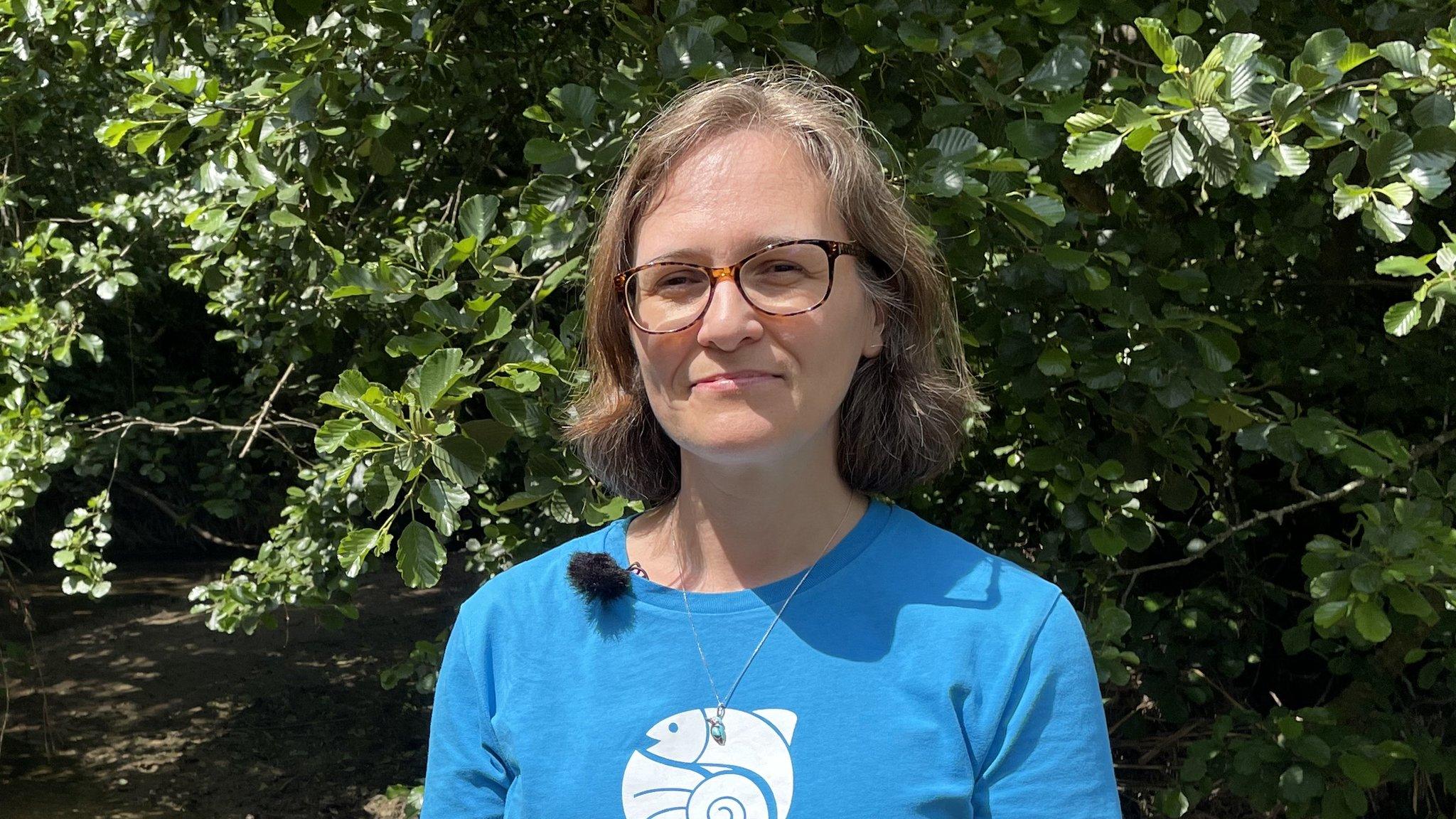Cambridge Water calls on customers to 'ditch the hose' this summer
- Published
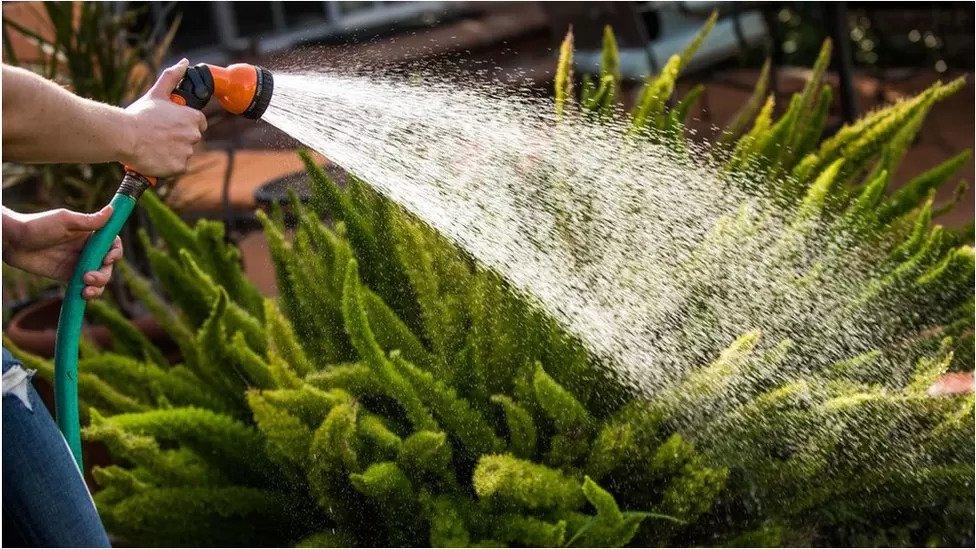
Hosepipe bans are in place in Sussex and Kent because of high summer demand on water supplies
A water company is calling on customers to "ditch the hose" as seasonal demand puts an added strain on resources.
A garden hose can use up to 1,000 litres (220 gallons) an hour compared to 200 litres (44 gallons) with a watering can, Cambridge Water said.
Water can be piped in from other areas or taken from local chalk streams to satisfy high summer use, it added.
The firm said it would also "do its bit", aiming to reducing leakage from the system by 15% by 2025.
Its campaign, called Can for the Cam, calls on its 300,000 customers to use watering cans instead of garden hoses when filling paddling pools, washing the car or watering the garden.
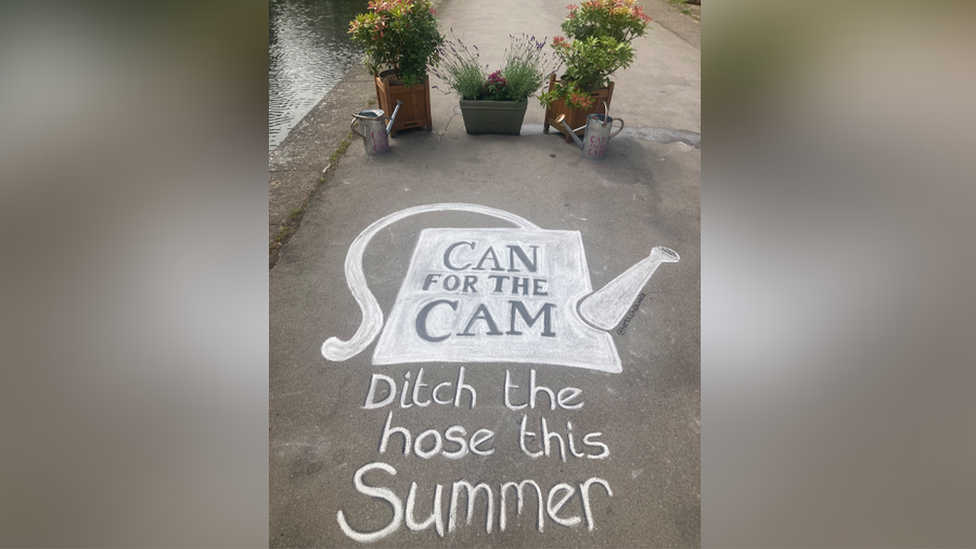
The Cambridge Water campaign aims to encourage customers to opt for the watering can over the garden hose
Natalie Akroyd, director of quality and environment at Cambridge Water, said: "In Cambridgeshire, an extra 20 million litres a day is used, approximately, over the summer.
"Cambridge Water does not have enough reserves, so we must pipe it in from other areas, which isn't ideal.
"The alternative is to take more from groundwater sources, but this will affect Cambridgeshire's local streams and rivers, including the River Cam."
'Over-watering'
Helen Collins, a garden mentor, said she uses very little tap water in her small garden in Cambridge.
Instead she collects grey water (household waste water from sinks and baths) in an underground butt and uses a pump to replenish her pond.
"A watering can will give us a better sense of exactly how much water we are putting on to our plants," she said.
"Quite a lot of plants suffer as much from over-watering as they do from under-watering.
"Plants are pretty efficient in what they use. If you go splashing a load of water around, you can do more harm than good, and you are definitely wasting a lot more water."
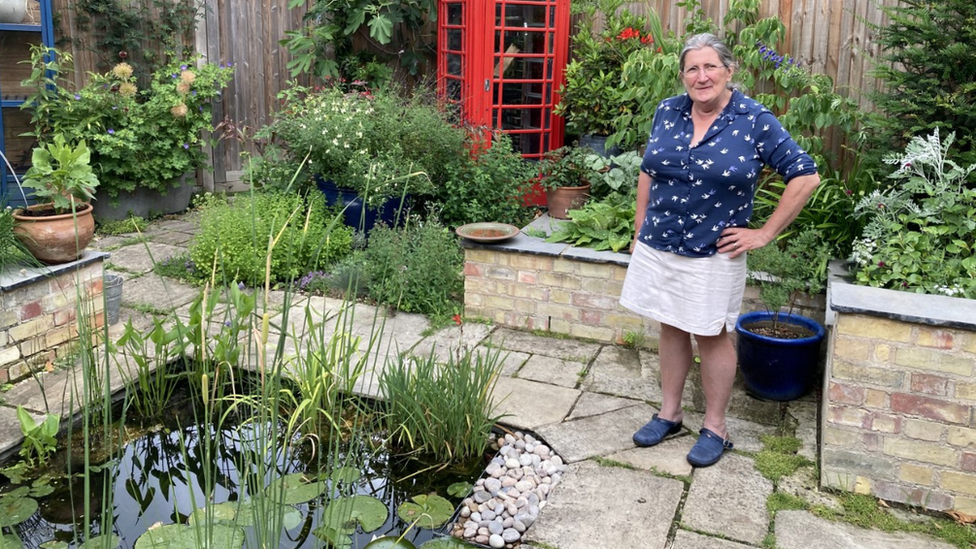
Garden mentor Helen Collins said water can be wasted if it is not directed at the right place in the garden
The south-east of England, including the East and Cambridge, had the largest concentration of chalk streams in the world, external, with 85% of the 260 known worldwide - with the rest based in northern France, Cambridge Water said.
Rich in minerals, chalk streams support a wide range of fish, marine life, animals and plants.
"If we all switch our hose to a watering can, we'll keep millions of litres in Cambridge's watercourses," Ms Akroyd added.

Find BBC News: East of England on Facebook, external and Instagram, external. If you have a story suggestion email eastofenglandnews@bbc.co.uk or get in touch via WhatsApp on 0800 169 1830
- Published29 June 2023
- Published16 June 2023
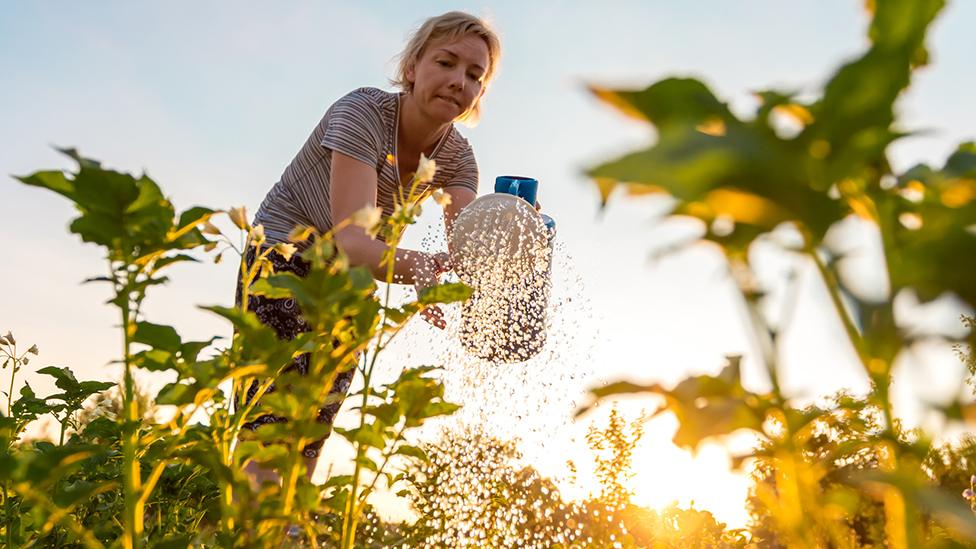
- Published20 April 2023
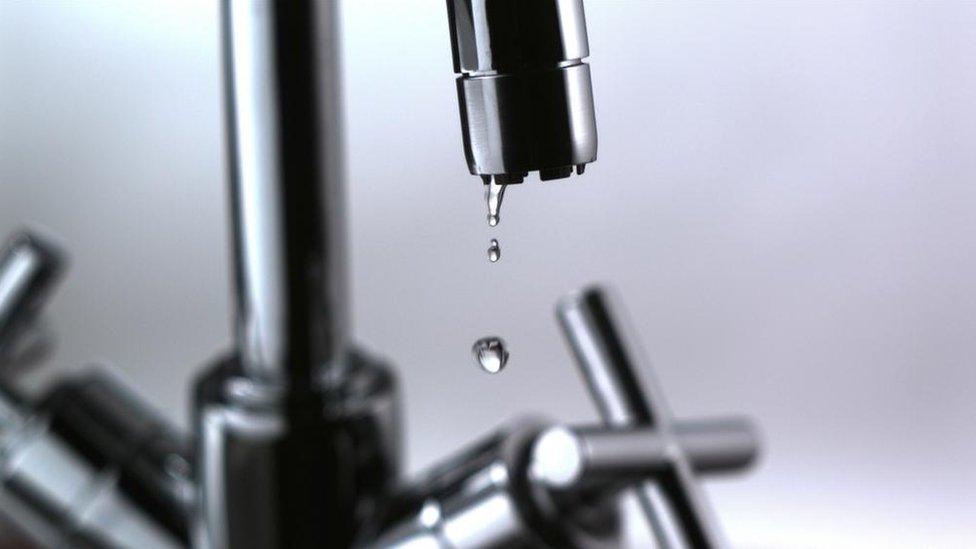
- Published26 June 2023
